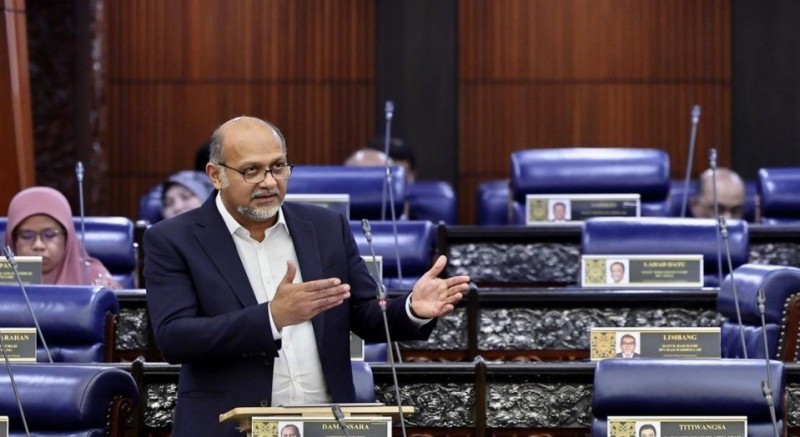
Small and medium-sized enterprises (SMEs) must embrace artificial intelligence (AI) and e-invoicing to remain competitive in Malaysia’s evolving digital economy as digitalisation is no longer optional and businesses that fail to adapt risks falling behind.
Malaysian Digital Minister Gobind Singh Deo believes that technology has become a necessity rather than a luxury, underscoring the need for businesses of all sizes to adopt digitalisation to maintain competitiveness, compliance and sustainability.
“The future of business is digital. The question is not if businesses will adopt AI and e-invoicing – it’s when,” Gobind said.
“SMEs are the backbone of Malaysia’s economy, contributing over 38% to Malaysia’s gross domestic product (GDP) and employing millions of Malaysians, yet many still rely on outdated processes that slow down efficiency, limit growth and create unnecessary financial risks.
“To thrive in the modern economy, SMEs must take advantage of AI-driven solutions and digital financial tools to enhance business operations, reduce costs and improve compliance efficiency,” he added.
Regarding Malaysia’s move toward full implementation of e-invoicing, the digital minister mentioned that the initiative goes beyond regulatory compliance, serving as an opportunity to digitalise business operations and a crucial step in modernizing the country’s financial ecosystem.
“E-invoicing offers several benefits, including faster payments, lower administrative costs and improved tax compliance through a seamless fraud-resistant system. Transitioning to e-invoicing now will put you ahead of the curve and give you a competitive advantage in Malaysia’s digital economy,” he continued.
Additionally, he revealed that the government is committed to accelerating Malaysia’s digital transformation by strengthening talent development in technology fields, including artificial intelligence (AI), to ensure the workforce is ready to face the challenges of the digital economy.
On this, Gobind said that the eUsahawan programme organised by the Malaysia Digital Economy Corporation (MDEC) has trained over 563,000 entrepreneurs since 2015, enabling them to master digital marketing and e-commerce strategies.
“We have also implemented the MD Workforce Training and Place & Train initiative, which has involved 12,964 local workers in fields such as AI, cloud computing, data science and animation up until December 2024,” he said.
Gobind added that as of November 2024, the overall achievement of the Public Sector Digitalisation Strategic Plan 2021-2025 reached 82.15% and that the government is implementing AI at Work 2.0 – a collaboration with Google Cloud that allows 445,000 civil servants to use generative AI technology in their daily tasks.
“This initiative aims to improve work efficiency, allowing civil servants to focus on strategic tasks and accelerate the delivery of services to the people,” he went on.
He explained that in efforts to strengthen the country’s AI ecosystem, the government plans to establish an AI Excellence Centre to serve as a research, innovation and training hub for AI as well as a platform for developing innovative AI solutions.
“To expand digital literacy, the government has also introduced the Digital Citizen Portal, a learning platform offering free technology courses.
“As of February 2025, more than 1.3 million Malaysians have participated in the AI For Citizens course, while new courses such as Blockchain for Citizens and Quantum Computing for Citizens will be introduced by the end of this year,” said Gobind.
Source: https://sme.asia/adopt-ai-e-invoicing-digitalisation-to-stay-competitive-gobind-urges-smes/

